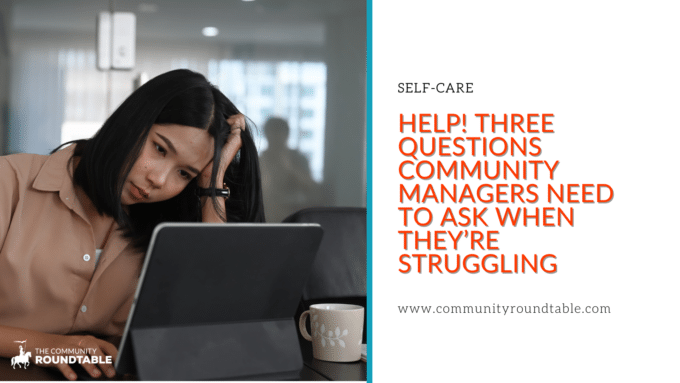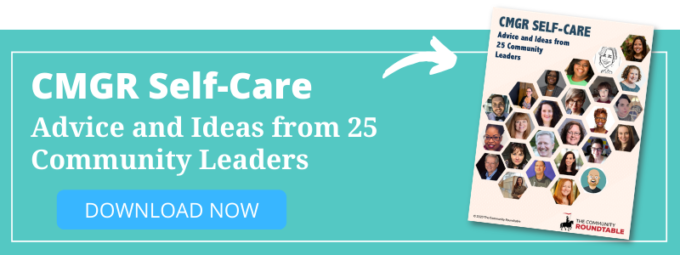
Community managers are burnt out. And they’ve been that way since before the COVID-19 pandemic began — in the 2019 State of Community Management (SOCM) about 50% of respondents reported they were highly burnt out, in need of community help, or frustrated overall.
Some of the reasons cited as contributing factors may sound familiar:
- Lack of resources
- Community platform difficulties
- Not enough time in the day to think both strategically and operationally (no balance)
The good news: Executive perception is shifting. Respondents in the not-yet-released 2022 SOCM reported more executives are seeing the benefit in all the hard work community managers do (and how it can positively impact the organization’s bottom line). Great! So what?
So now’s the perfect opportunity to ask for community help.
How to define your community needs
While we wish it were as simple as marching up to your executive’s office with a list of demands, that’s not quite what’s needed in this instance. Instead, in order to properly make your case for community resources — whatever they may be — you’ll first want to consider three things:
- The what
- The who
- The obstacle
The questions themselves are fairly straightforward, but we’ll look at them in more detail just so we’re on the same page.
What’s the ‘What’ in Community Help
When it comes to narrowing down the “what,” it can be hard to determine where to start. So, the best place to start is right here, right now: What is it — at this moment — you need the most? Also, what would help you solve it?
Determining your “what” can be a vulnerable situation to put yourself in, which can be intimidating, but an honest assessment is the only way to approach this. After all, the only way things can get better is by determining the true issue. So really get in there, and look at your community (and your management of it) from a granular level.
Who are you looking for?
Hello, is it me you’re looking for? Sorry, really bad joke. Anyway, after you’ve named the problem(s), it’s time to start looking for a solution.
The best way is by examining your sources — subject matter experts, superusers, leaders, etc. — and determining who will best be able to help you. Having a name (and some knowledge of who the person is and how they can help) will make it easier to actually ask for help.
Unsure of who that might be? Then who do you turn to for help currently? They can either help you determine who might be the right person for you to talk to, or they might have a solution themselves. Either way, seeking help from outside sources isn’t a sign of weakness. As Amanda Palmer explained in her TED Talk, “The Art of Asking,” people are keen to help out, but they’ll never know you need it if you don’t say something first.
Don’t let your ego be the reason your community’s issues don’t get solved – ask for community help.
‘Move [obstacle], get out the way’
Speaking of getting in your own way and other obstacles — the last question you need to ask yourself dovetails with the previous two nicely: What’s keeping you from what you need? It may be policy, budget, or any other number of things, but the important thing here is to name it.
By addressing these three questions you’ll be able to effectively layout your ask for community help in a logical way that makes it hard to turn down (especially if you remember to tie it back to the organization’s business goals). Stakeholders and C-suite executives will want to know the quickest path to getting ROI, so knowing who to ask for what — and when — will be key to a successful ask.

Need more community helpYou can find more tips for taking care of yourself in our CMGR self-care guide. Download your copy here.
